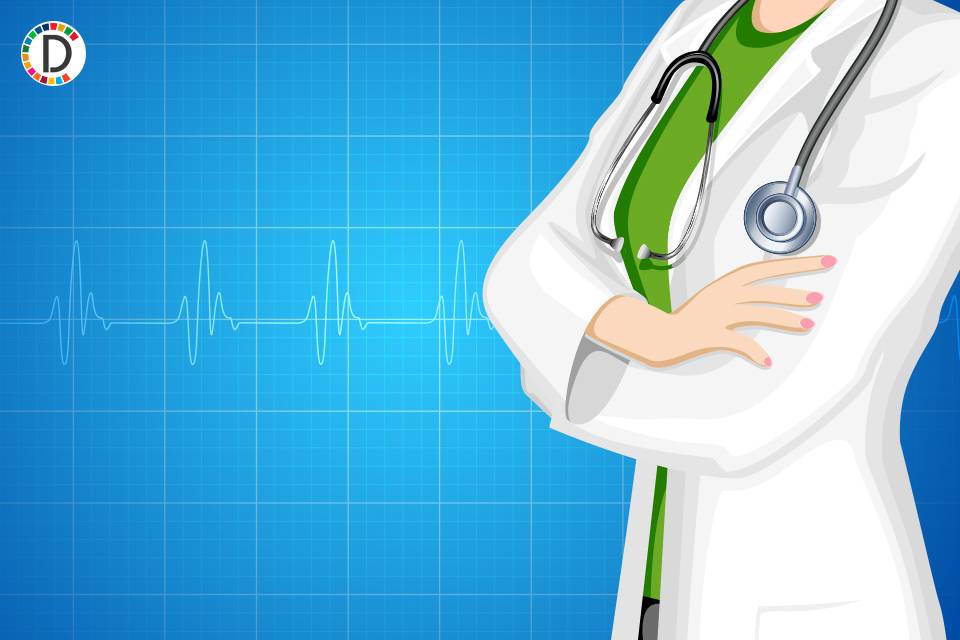Why African Americans are dying at higher rates from COVID-19

- Country:
- United States
The new coronavirus isn't biased about who it infects -- so why does data emerging from some states suggest that African Americans are bearing the brunt of the pandemic in the US? Experts say blacks are disproportionately impacted by underlying health conditions linked to poverty, face discrimination in medical care, and are more likely to work jobs that require them to leave their home. "We know that blacks are more likely to have diabetes, heart disease, lung disease," the nation's top doctor, Surgeon General Jerome Adams told CBS News on Tuesday.
These chronic illnesses, which are in turn linked to poverty and structural racism, can lead to more serious forms of the COVID-19 disease. Adams, who is himself black and has high blood pressure and asthma, added: "I represent that legacy of growing up poor and black in America.
"And I, and many black Americans, are at higher risk for COVID." There is no nationwide data available on COVID-19 cases by race, but a pattern of over-representation by black Americans has emerged in states or jurisdictions that are sharing the numbers. Sixty-eight percent of coronavirus deaths in Chicago have been among African Americans, who make up just 30 percent of the city's population.
"Those numbers take your breath away," the city's mayor Lori Lightfoot said Monday at a coronavirus briefing. "This is a call to action for all of us." The trend is repeated in North Carolina, Louisiana, Michigan, Wisconsin and the capital Washington. Doctor Georges Benjamin, executive director of the American Public Health Association, told AFP the issue was also linked to social class, with black people more likely to work jobs deemed essential that expose them to potential infection.
"That population is more public facing," he said. "More bus drivers, more people taking public transportation to work, more people providing services in nursing homes, more folks working in grocery stores." The problem is compounded by implicit and explicit bias that African Americans face in the medical system. Doctor James Hildreth, president of the historically black Meharry Medical College in Nashville, Tennessee told AFP that in his city, most of the initial testing took place at Vanderbilt University Medical Center.
Most of the patients who go to hospital systems like these have insurance, and it was only recently that three assessment centers were built for the underprivileged and minority communities -- one of them run by Meharry. "My point is, depending on which community you live in, and whether or not you have insurance... the chances for getting assessed are much less," he said.
What's more, it's well documented that when black people seek care, they are less likely to have their symptoms believed or get adequately treated, Doctor Ebony Hilton, an anesthesiologist at the University of Virginia Medical Center told AFP. For example, black women are less likely to have their breast cancer mammograms seen by a specialist as opposed to a general radiologist, according to a 2015 Duke University study.
Black heart patients who present with elevated levels of a group of proteins indicating cardiac injury are also less likely to be seen by specialists, per a 2018 study. A civil rights group wrote this week to the US health secretary, Alex Azar, calling on him to "release daily racial and ethnic demographic data related to COVID-19 testing, disease burden and patient outcomes." This, said the Lawyers' Committee for Civil Rights Under Law, was necessary to ensure a robust public health response, and to make certain care and testing aren't being administered in a discriminatory manner.
The group said the Centers for Disease Control and Prevention (CDC) was already collecting the information but deliberately withholding it. Hilton stressed that it was in the interests of Americans as a whole to address the problem, because -- unlike high rates of heart disease or cancer -- a wave of coronavirus spreading through the black and Hispanic population will ultimately impact everyone else.
"When you have a system that's not treating these people of lower social economic status and these minority groups, they are then not being tested, they're sent back home to infect their community," she said. "Those workers who are now infected are going to the grocery store, and when the upper echelon of America are going to get their food, they will get infected too."
(This story has not been edited by Devdiscourse staff and is auto-generated from a syndicated feed.)










